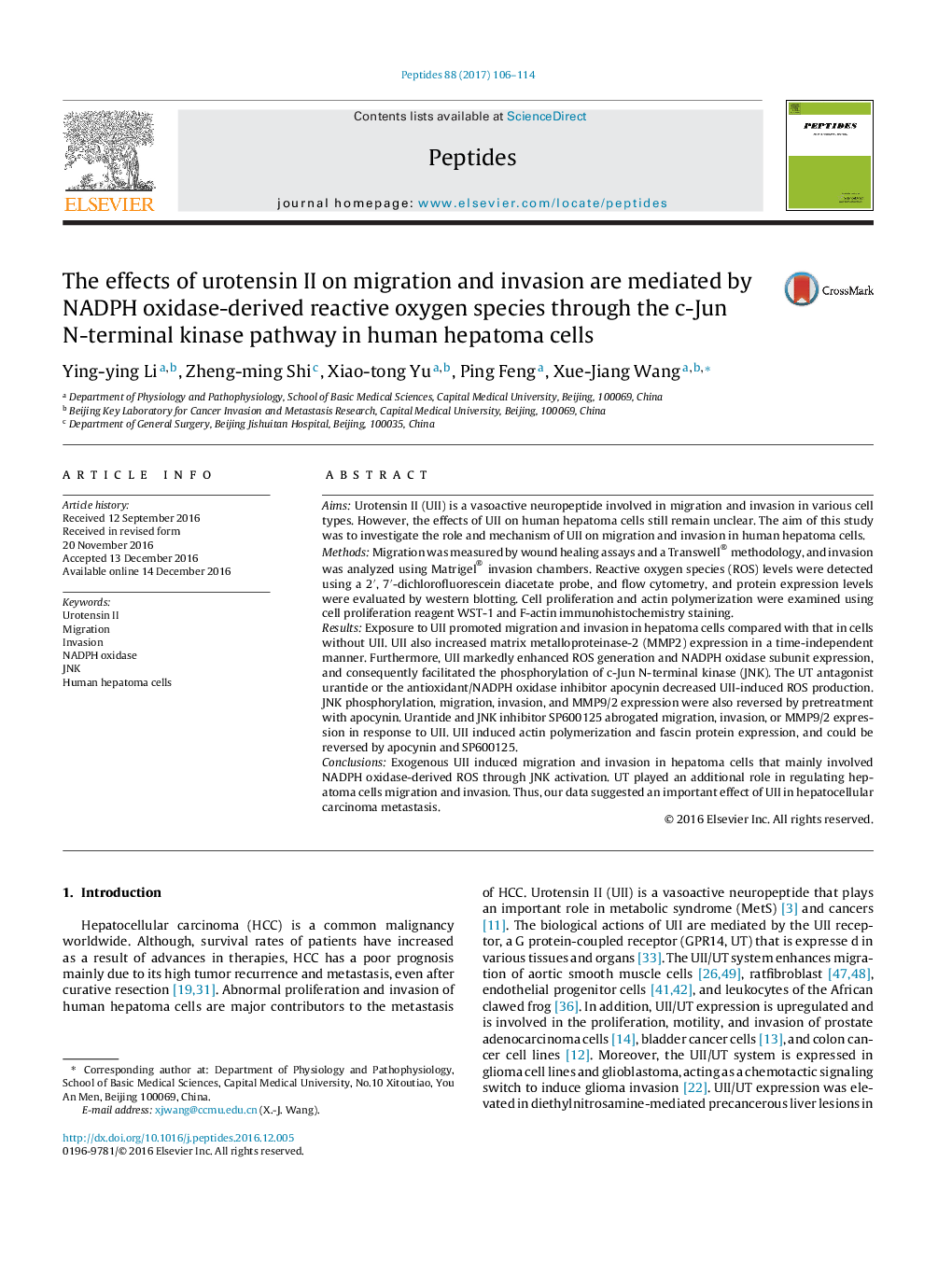| کد مقاله | کد نشریه | سال انتشار | مقاله انگلیسی | نسخه تمام متن |
|---|---|---|---|---|
| 5514675 | 1541691 | 2017 | 9 صفحه PDF | دانلود رایگان |

- UII mediated migration and invasion and increased MMP9/2 expression in hepatoma cells.
- NADPH oxidase-derived ROS mediated migration and invasion and MMP9/2 upregulation by UII.
- JNK activation by ROS mediated the migration and invasion and upregulation of MMP9/2 in response to UII.
- UII induced actin polymerization and fascin expression through ROS by the JNK pathway.
AimsUrotensin II (UII) is a vasoactive neuropeptide involved in migration and invasion in various cell types. However, the effects of UII on human hepatoma cells still remain unclear. The aim of this study was to investigate the role and mechanism of UII on migration and invasion in human hepatoma cells.MethodsMigration was measured by wound healing assays and a Transwell® methodology, and invasion was analyzed using Matrigel® invasion chambers. Reactive oxygen species (ROS) levels were detected using a 2â², 7â²-dichlorofluorescein diacetate probe, and flow cytometry, and protein expression levels were evaluated by western blotting. Cell proliferation and actin polymerization were examined using cell proliferation reagent WST-1 and F-actin immunohistochemistry staining.ResultsExposure to UII promoted migration and invasion in hepatoma cells compared with that in cells without UII. UII also increased matrix metalloproteinase-2 (MMP2) expression in a time-independent manner. Furthermore, UII markedly enhanced ROS generation and NADPH oxidase subunit expression, and consequently facilitated the phosphorylation of c-Jun N-terminal kinase (JNK). The UT antagonist urantide or the antioxidant/NADPH oxidase inhibitor apocynin decreased UII-induced ROS production. JNK phosphorylation, migration, invasion, and MMP9/2 expression were also reversed by pretreatment with apocynin. Urantide and JNK inhibitor SP600125 abrogated migration, invasion, or MMP9/2 expression in response to UII. UII induced actin polymerization and fascin protein expression, and could be reversed by apocynin and SP600125.ConclusionsExogenous UII induced migration and invasion in hepatoma cells that mainly involved NADPH oxidase-derived ROS through JNK activation. UT played an additional role in regulating hepatoma cells migration and invasion. Thus, our data suggested an important effect of UII in hepatocellular carcinoma metastasis.
Journal: Peptides - Volume 88, February 2017, Pages 106-114